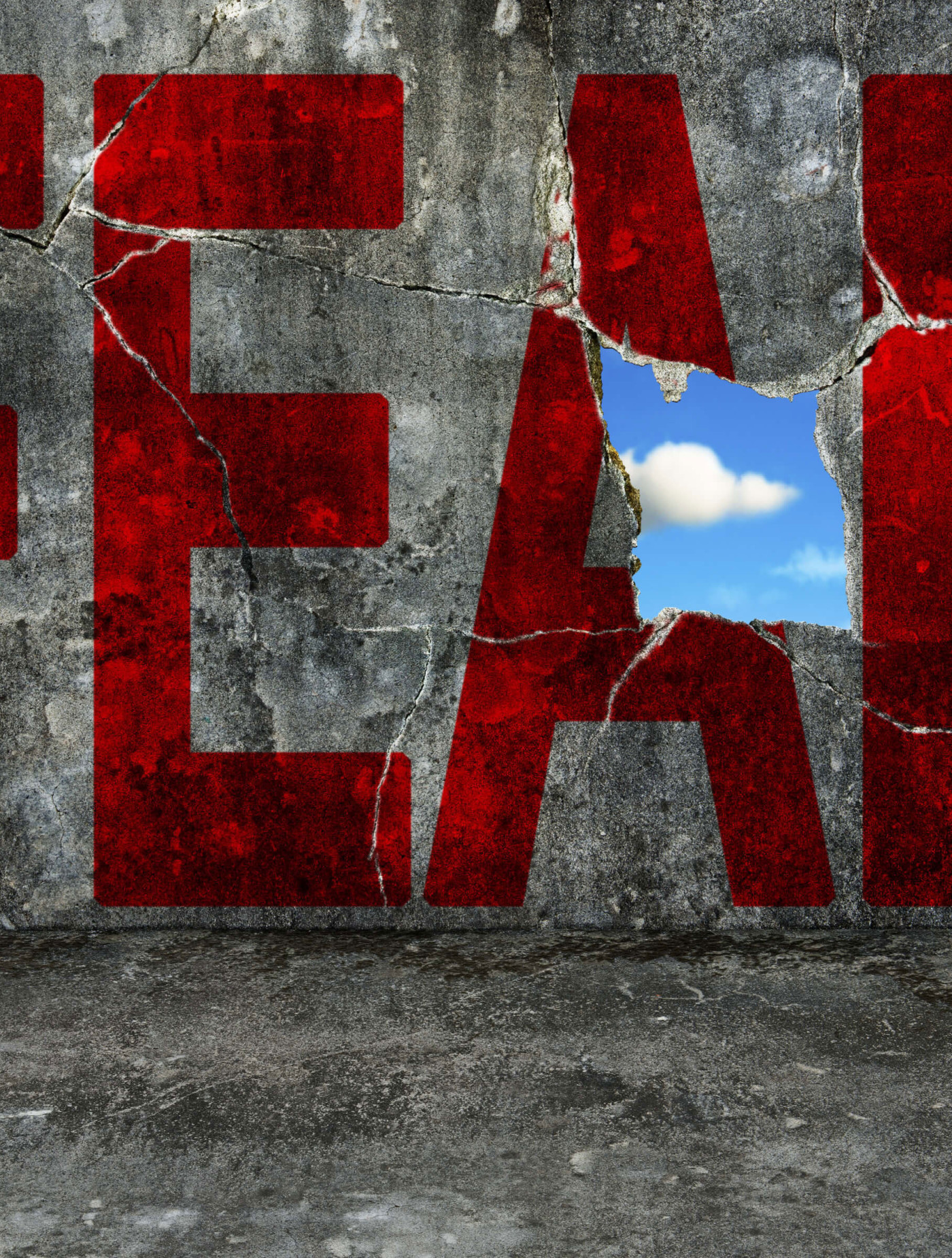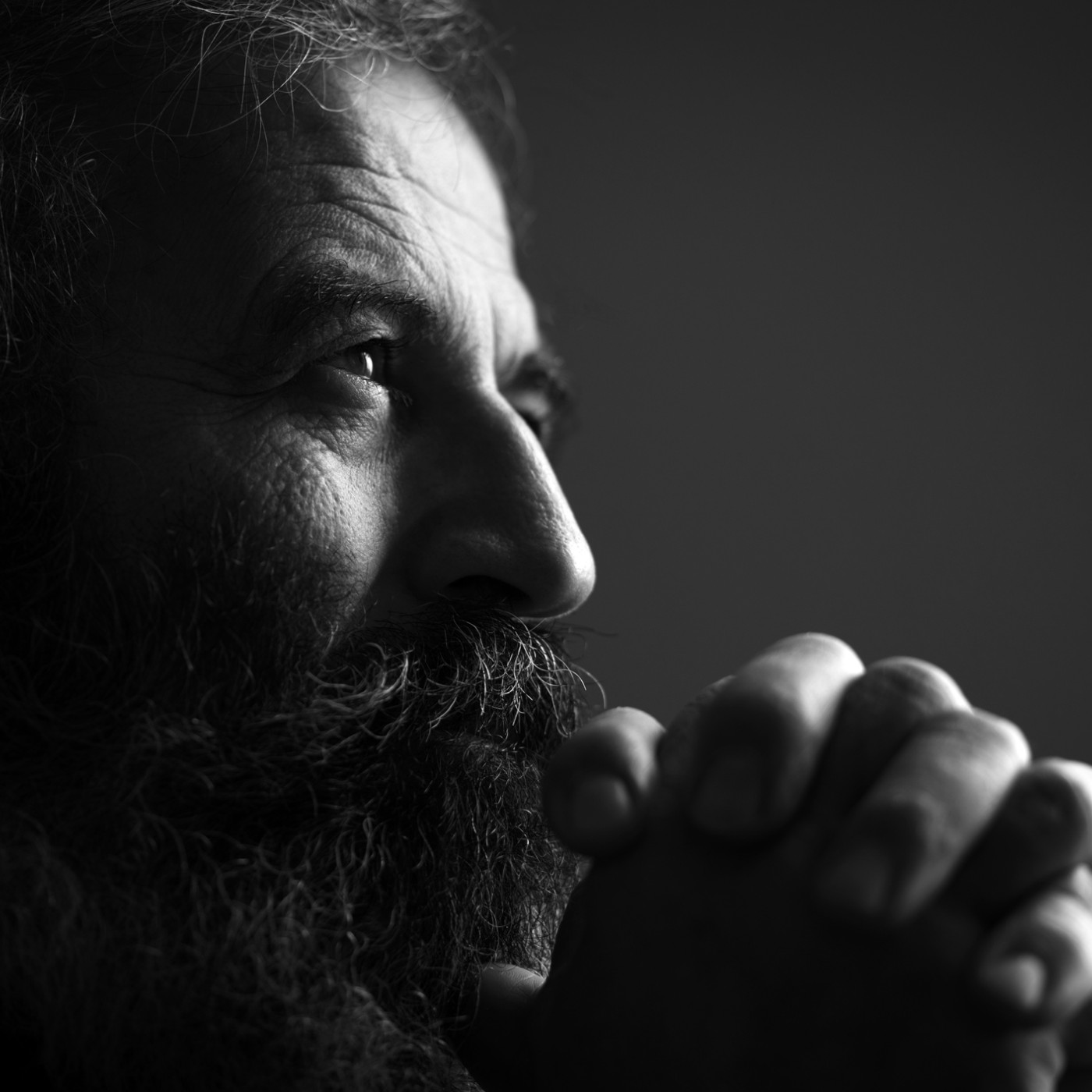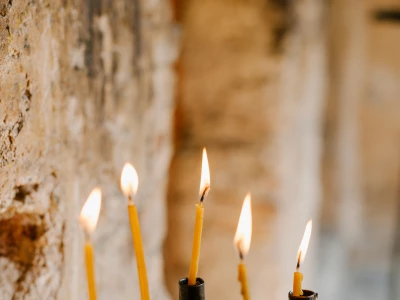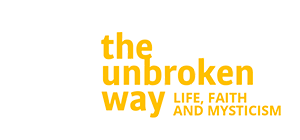Share this article
Six Steps To Overcome Fear

1. Become Aware of Your Fears
The first thing we need to do is to be aware of the real cause of our fear. Without awareness, we have no free will, and so we act out of unconscious thinking. Often we can make things worse, especially when we find ourselves in a tight spot. It's then that we can overreact or diagnose the wrong problem.
It can feel counter-intuitive, but when we begin to feel fearful, we need to slow down. When we look at our thoughts, we will discover that they are just that: thoughts. They are not reality. No matter how anxious we feel, our thoughts are not going to kill us.
For a long time, whenever I became anxious or fearful, I'd look outward for solace: I'd call friends and ask them for advice regarding my mostly imagined fears. This approach usually only alleviated my sense of unease for a short while. But, after years of self-inflicted suffering, I finally took Cushla's advice to 'go in'. She meant that I needed to look within myself, not to others, for solutions. 'Going in', she elaborated, meant that I should become silent and listen out for God's voice or wait for my own higher / intuitive intelligence to guide me. 'You might not get an answer straight away, but you will in time,' she'd say to encourage me. She was right: when I slowed down and prayed, I'd begin to see more clearly the real cause of my fear. What's more, the right answer to my problem would usually present itself to me in due course.
2. Sit With Your Fears
'Try to stay with it for twenty minutes. If you can't do that, try three minutes and if you can't do that, try for one minute. You can bear almost anything for one minute,' Cushla would counsel me when I was particularly fearful. She appreciated that sitting with our fears was an uncomfortable experience, but she knew that running from them or pretending they are not there only represses them and makes them grow bigger deep down in our minds. Staying with our fears, she intuited, allows them to speak to us. We can observe and assess them in a much more detached manner:
I'm still practising these lessons, but after years of trial and error, I can concur with Cushla and other teachers who suggest that when we feel anxious or fearful, we should 'just let it be.' Don't try to make your fears go away. Don't try to force yourself to calm down. Just say your mantram or try to focus on your breathing. Let the fear rise and fall with your breathing. Eventually, with practice, if we can learn to accept the present moment, a much wiser course of action will present itself to us than if we were panicking. We may even become aware that the level of our fear is irrational in the first place or that we have blown it out of all proportion.
3. Repeat a Mantram

'For we live by faith, not by sight'
2 Corinthians 5:7 NIV
One of the best practical spiritual tools I use for calming my fears is repeating my mantram (sometimes called a mantra). 'What's a mantram? It sounds like an exotic fruit,' some of you are asking. You might be even conjuring up an exotic image of a bald monk wearing an orange robe or a Hare Krishnas chanting in your local high street with their flowing robes, garlands and incense. But, as someone who has their feet on the ground (so I'm told), let me reassure you that a mantram is just a practical and straightforward tool to help us in our everyday lives. And, it is open to all whether you are religious or atheist.
Cushla and I first learned about the real meaning and benefits of repeating a mantram at the Blue Mountain Meditation Center (BMCM) in California. ('Where else?' You might ask. But, bear with me). In his highly regarded book, Meditation*,Eknath Easwaran, the founder of BMCM and a great down–to–earth spiritual teacher, says: 'The mantram is simply a spiritual formula of great power used in many religious traditions….the adherents to their religion draw on this power as often as possible during the day, each repetition adding to their physical and spiritual well-being… repeating a mantram, strengthens our will, heals us, helps to unify our purposes and allays our fears.'
Many of the saints and mystics of the great religions knew that a mantram could build supernatural courage. The key they discovered is repetition. (St. Francis is known to have stayed up all night at times, repeating, 'My God and my all, my God and my all, My God and my all!').
The good news is you don't have to be a saint or mystic to obtain extraordinary benefits from repeating a mantram. It can be replicated anywhere and anytime: in a traffic jam, after receiving bad news on the phone, or out on a walk. The latter can sometimes be called a mantram walk. I find that walking and repeating my mantram is particularly beneficial when I have anxious thoughts. Don't take my word for it⸻; try it for yourself. Only by doing it, you will realise how powerful it is in reducing fear and giving you perspective.
Choosing Your Mantram
Eknath Easwaran advises taking great care in your choice of mantram, saying: 'After all, it will be with you for a long time…take into account the significance of the words, your religious background and your personal response.' He later adds:
'Not any word will do as a mantram. I strongly urge you to choose a mantram that has been sanctified by long use, ⸻one of proven power that has enabled men and women before you to realise the unity of life. The roots of such a mantram go far deeper than we can ever know when we begin to use it.'
Cushla and I had the same mantram, which we found particularly powerful when we were attacked by fearful thoughts or anxiety: 'Sacred Heart of Jesus, I place all my trust in You'. Some Christians may prefer a shorter mantram, e.g. repeating the Holy Name, Jesus. Because of bad experiences or conditioning, others may have a problem with names or figures from the religious tradition you were brought up with. If so, maybe they could choose a mantram from the Buddhist tradition, which is free of theology and dogma (see Recommended Resources below).
4. Pray

'And whatever things you ask in prayer, believing, you will receive.'
Matthew 21:22
As well as a mantram, I suggest you learn, by heart, some short prayers or short scriptural verses which deal with fear. There's nothing magical about words and verses, but there is power in them because they are God's words. When I feel afraid or anxious, I sit down and close my eyes. After around twenty minutes of silently repeating the verses from scripture, I feel much stronger and can face difficulties with far more courage and resilience. Often, I can't believe that I am the same person who felt weak and not up to the task at hand earlier. Here are three of my favourites:
'Peace is what I leave with you; it is my own peace that I give you. I do not give it as the world does. Do not be worried and upset; do not be afraid. John 14:27
‘For God hath not given us the spirit of fear; but of power, and of love, and of a sound mind.’ 2Timothy1:7
'Be strong and courageous. Do not be frightened, and do not be dismayed, for the Lord your God is with you wherever you go.' Joshua 1:9
5. HAVE 100% Faith, 0% Fear
You may believe in a higher power but wonder why you still feel fearful a lot of the time. Maybe it's because, like I was for years, you have a dualistic mind: sometimes you believe in God and other times you're not so sure. I learned from years of experience that if this is the case, you won't see much results and will have a lot of underlying fear.
One of the consequences of Cushla's enduring faith was that she was the happiest and most fearless person I ever knew. I wanted what she had, but I was double-minded when it came to faith: I only half-believed, so I didn't have the same fearlessness as she did. I wanted to change, but I was a reluctant learner. I paid the price:
I was in business for years, and even in the good years, when things were going well, I still had an underlying, albeit, low level of anxiety for a lot of the time. I learned from Cushla that this preoccupied fear comes from a lack of trust in God and that when you have this type of fear, you have no peace.
When Cushla saw me struggling with doubt or anxiety, she reminded me of a saying she had conceived of herself: 'If you have a hundred per cent faith, you will have zero per cent fear.' Because I could see that it was working for her, her saying completely resonated with me.
She gave different percentages to elucidate her spiritual formula: 'If you have only twenty per cent faith, you will have eighty per cent fear,' or 'If you have ninety per cent faith, you will still have ten per cent fear,' and so on. They weren't just words to her—she lived by this tenet every day, especially when life was tough. Many a time, I witnessed how her strong faith activated heaven's power for her and how it helped her to grow utterly fearless in the face of illness, financial insecurity, loss, and even her own death.
I was inspired and eventually had to say to myself: 'You either have faith, or you don't, so stop wasting time.' I chose faith.
6. Learn to Meditate
Meditation is practised in numerous religious traditions, and many of its practitioners, including myself, attest to its effectiveness in reducing anxiety. Cushla used to joke that I'd be 'climbing the wall' if I didn't meditate every day!
Meditation also effectively reduces stress, helps with living a purposeful life, releases deep reserves of energy, develops profound capacities for insightful wisdom, and a host of other benefits for our body, soul, and mind. This topic deserves a separate dedicated blog which I will publish soon.
Recommended Resources
Books
Passage Meditation by Eknath Easwaran. Published by Nilgiri Press.
Share this article
Categories
in your inbox

Fear









